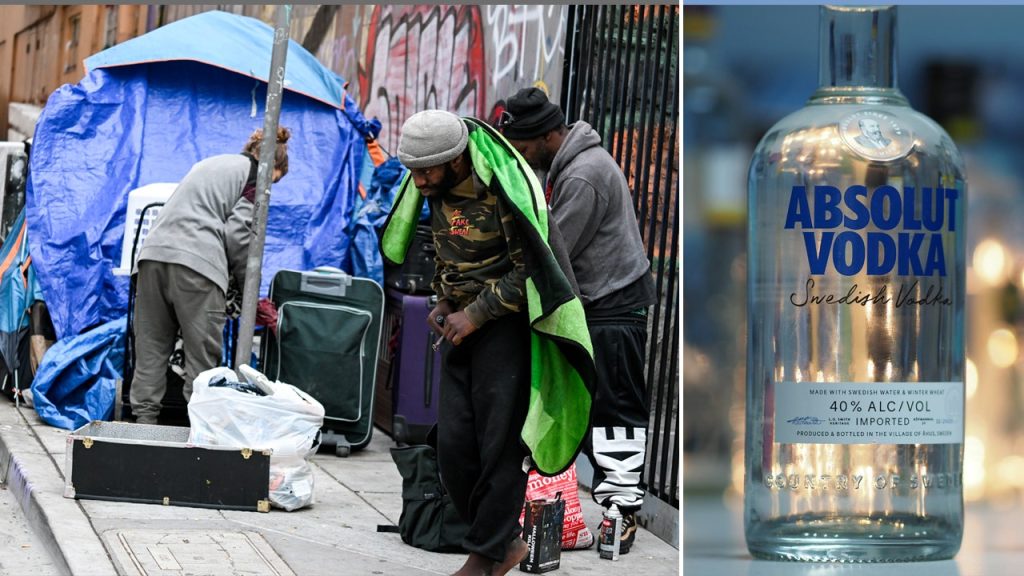The City of San Francisco has implemented a free alcohol program for homeless alcoholics as part of a Managed Alcohol Program pilot. The program, known as MAP, aims to provide regimented doses of alcohol to voluntary participants with alcohol addiction in an effort to keep the homeless population off the streets and reduce the burden on emergency services. While some experts believe the program can save lives and prevent potentially life-threatening effects of alcohol withdrawal, others question whether the government funding would be better spent on treatment and sobriety programs.
The San Francisco MAP was initially established during the COVID-19 pandemic to prevent vulnerable homeless individuals from suffering from alcohol withdrawal while in isolation in hotel rooms. The program, which started with 10 beds, has since been expanded to 20 beds located in a former hotel in Tenderloin with an annual budget of $5 million. Nurses provide clients with lodging, meals, and enough alcohol to meet their addiction needs while keeping them at a safe level of intoxication. The success of the program led to its expansion into a long-term initiative with special beds allocated for specific populations in need.
Once clients are admitted to the program, they undergo assessments to determine individual needs and are provided with resources to address their alcohol abuse problems. Additionally, clients are connected to primary care doctors, assisted with obtaining government identification if necessary, and offered various evidence-based treatments and wellness activities on-site. Marijuana use is also common at the program sites, although there is no policy prohibiting its consumption, health providers monitor the activity to prevent adverse effects.
Despite its successes, the San Francisco MAP has faced criticism from individuals like Adam Nathan, CEO of an AI company and chair of the Salvation Army San Francisco, who questioned the program’s effectiveness and principles. While the Salvation Army promotes abstinence for alcoholics and provides rehabilitation programs, public health officials defended the MAP by clarifying that alcohol is dispensed by nurses, and it is not accessible to homeless individuals who are not participating in the program. The program has also received negative feedback from San Francisco Mayor London Breed, who believes that harm reduction strategies may not be the best approach to address addiction issues.
The goal of the Managed Alcohol Program in San Francisco is not to reduce the amount of alcohol consumed or promote abstinence, but rather to mitigate the various health, legal, and interpersonal harms associated with unsafe alcohol use. Officials report that the program has led to substantial cost savings by reducing hospital visits, police calls, and EMS responses made by participants. Other countries, such as Canada, Portugal, and the U.K., have adopted similar managed alcohol programs, with positive outcomes seen in terms of reduced risk of death and hospitalizations among homeless individuals with severe alcoholism.
However, critics of the program argue that taxpayer dollars should be allocated towards detox and recovery programs rather than managing alcohol addiction indefinitely. Despite the differing opinions on the effectiveness of the San Francisco MAP, health officials maintain that the program has resulted in significant reductions in emergency service use for a small but highly vulnerable population. As more countries explore managed alcohol programs as a harm reduction strategy, ongoing evaluation and research are needed to assess the long-term impact of such initiatives on homeless individuals struggling with addiction.


